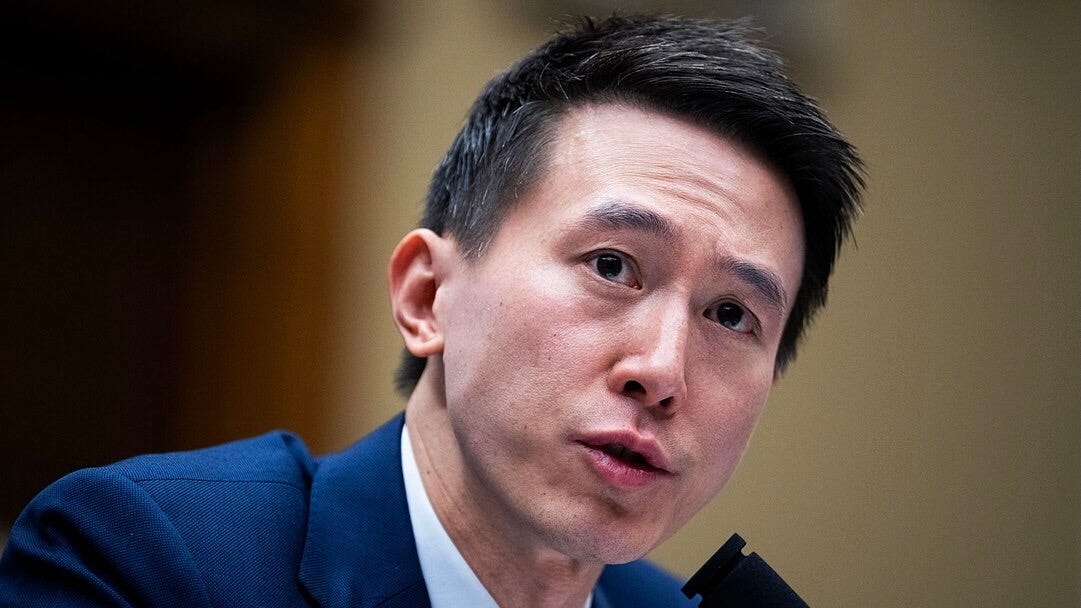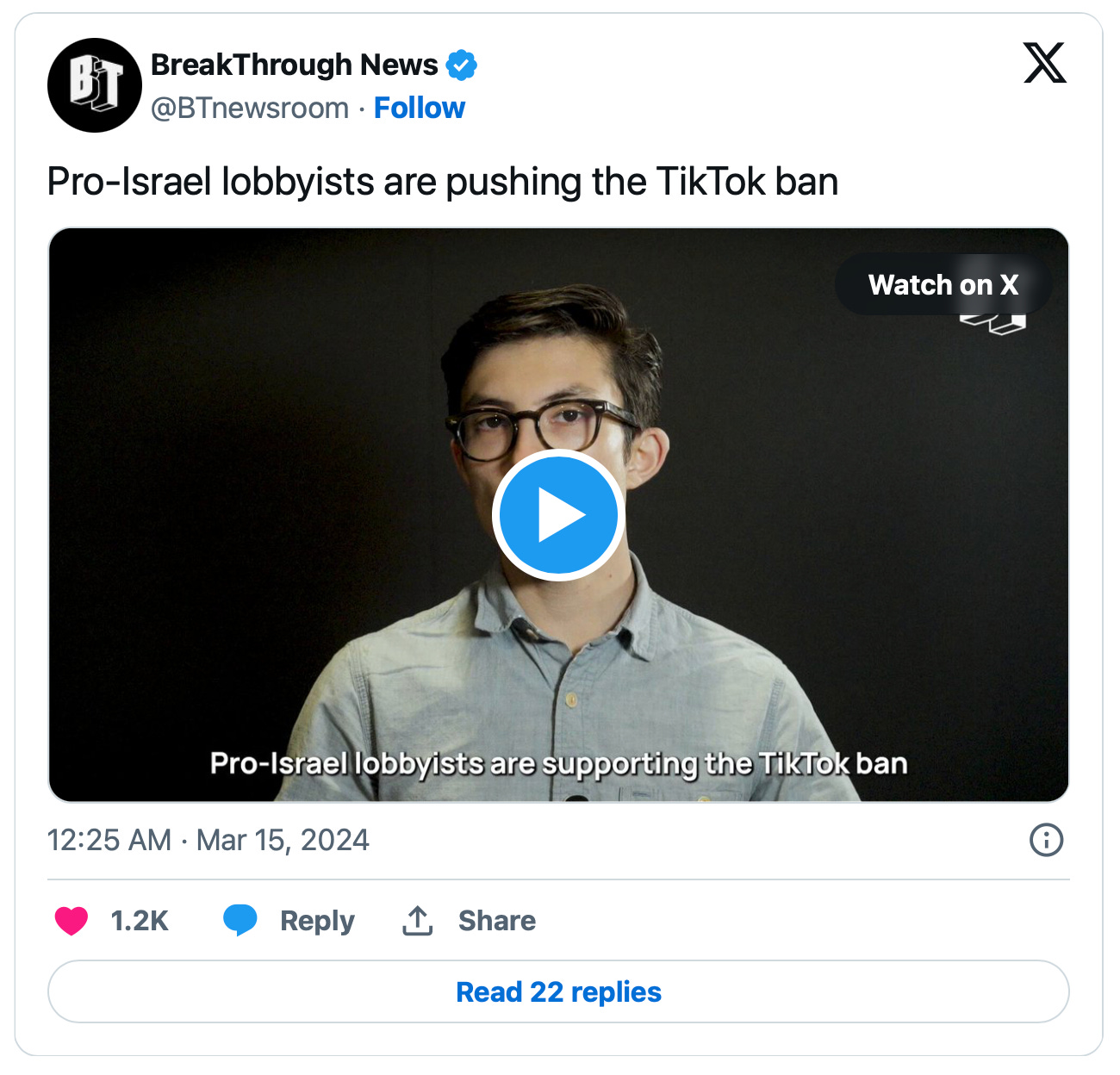Why Are US Lawmakers Set on Banning TikTok?
Past Efforts to Ban the Enormously Popular App in the United States Have Failed

TikTok CEO Shou Zi Chew testifies during the House Energy and Commerce Committee hearing titled TikTok: How Congress Can Safeguard American Data Privacy And Protect Children From Online Harms, on Thursday 23 March 2023. Photo: Tom Williams
On 13 March the House of Representatives acted far quicker than usual in passing a bill that would force the Chinese parent company of TikTok, ByteDance, to sell the video-sharing app to a US company or be banned in the United States. The bill was passed by an overwhelming majority of 352 in favor and 65 against—with most members of both major parties voting in favor. The bill is now in the Senate, after which, if passed, Biden has vowed to sign it into law.
The digital front of the Cold War
The piece of legislation, entitled “Protecting Americans from Foreign Adversary Controlled Applications Act,” seeks to “protect the national security of the United States from the threat posed by foreign adversary controlled applications.”
For years, the widespread popularity of Chinese-owned TikTok among young people in the US has spun politicians and other operatives into a Cold War-era frenzy. This is not the first time that the government has tried to ban TikTok—in 2020, amid a mass protest movement that had just ignited after the killing of George Floyd, Trump signed an executive order to ban the app unless it was sold to a US parent company, similar to the current bill. The order was stalled after a challenge in a federal court. At the time, videos and imagery from the mass protests across the country were drawing millions of views.
Brian Becker, anti-imperialist organizer and Executive Director of the ANSWER Coalition, spoke about the latest attempt to ban TikTok in his show The Socialist Program and said is just another facet of the New Cold War against China. Becker likens the ban to the House Un-American Activities Committee, a House of Representatives committee tasked with repressing communists and those with alleged ties to the Soviet Union.
“The new McCarthyism, the anti-China campaign [is] reaching truly demented levels. A true hysteria. But that’s true about the last witch hunt too, the one in 1946, ‘47, ‘48. The [HUAC] wasn’t getting that much traction in their anti-communist crusade until they could start to target Hollywood,” said Becker, referring to the US government’s repression of artists working in the film industry on the loose basis of having communist ties. “That guaranteed a lot of publicity… a lot of this is driven by these opportunist politicians, Democrat and Republican alike, who are trying to get lots of attention for themselves by showing that they’re the ones standing up to China.”
Indeed, politicians in the US are whipping up the public into a frenzy over TikTok’s purported “national security” threat, although US intelligence officials themselves have admitted that this threat is entirely hypothetical.
Some of the chief accusations leveraged against TikTok are that because its parent company, ByteDance, is a Chinese company, it could be forced by the Communist Party of China (CPC) to hand over the data of TikTok users, or engage in operations to control public opinion.
TikTok has claimed to have never shared US user data with the Chinese government, and wouldn’t do so if asked. TikTok CEO Shou Zi Chew has said that a TikTok ban would in fact concentrate more power in the hands of fewer social media companies. One such company is US-based Meta, which has been embroiled in lawsuits since 2018 due to its practice of allowing third parties to access user data.
Chew himself has received accusations of being somehow part of the CPC, although not being Chinese himself. Chew was brought before the US Senate in which he was grilled on TikTok’s supposed security threats by several politicians. These included the ultra-right Senator Tom Cotton, who used all manner of questioning to find one iota of evidence linking the CEO to China: asking if Chew had applied for Chinese citizenship or held a passport from another nation other than his native Singapore. Cotton also asked if Chew had ever been a member of the CPC, to which he replied, “Senator, I’m Singaporean. No.”
The mass movement for Palestine
In 2024, after almost six months of the largest movement for Palestine in US history, the TikTok ban has new potential to actually be enacted. Some are drawing links between the popularity of the Palestine solidarity movement on the video-sharing app and lawmakers’ attempts to shut it down. Clare Daly, member of the European Parliament, called the push to ban TikTok, “a deeply destructive and authoritarian attempt to suppress information, and to punish citizens for disagreeing with their government about Palestine. The minute they lose control of the narrative, freedom of expression goes out the window.”
US Senator Lindsey Graham claimed that TikTok is “being used to help people who want to destroy the Jewish state.” Former presidential hopeful Nikki Haley claimed that using TikTok makes people 17% more anti-semitic.
Recently leaked audio of Anti-Defamation League (ADL) Director Jonathan Greenblatt went viral, in which Greenblatt defines the chief obstacles that Zionist propaganda machines like the ADL face. In the audio, Greenblatt claims that the difficulties of pushing Israeli narratives are not due to a “left/ right divide,” instead they are due to a generational divide.”
“We have a major, major, major generational problem,” he can be heard saying. “And so we really have a TikTok problem, a Gen Z problem.”
Indeed, polling has shown that Israel’s popularity is dipping drastically among US youth.
According to Mohammed Nabulsi of the Palestinian Youth Movement, an organization behind many of the largest pro-Palestine demonstrations across North America, the shift among youth in favor of Palestine “didn’t start because of TikTok.” Instead, it started “because of the actual mobilization into the streets.”
Nabulsi explains that it is youth that build their platforms on TikTok, not the Chinese government, and the real issue that the US “ruling class” has with TikTok is their “inability to control what youth are producing, not just consuming.”
According to economist Richard Wolff, there is hope despite the anti-TikTok fearmongering, in that “even this debate” over the app is drawing the attention of even more young people onto political issues. “We’re going to be surprised by some of the switches in American politics in the months and years ahead as this understand begins really to spread in the population.”





